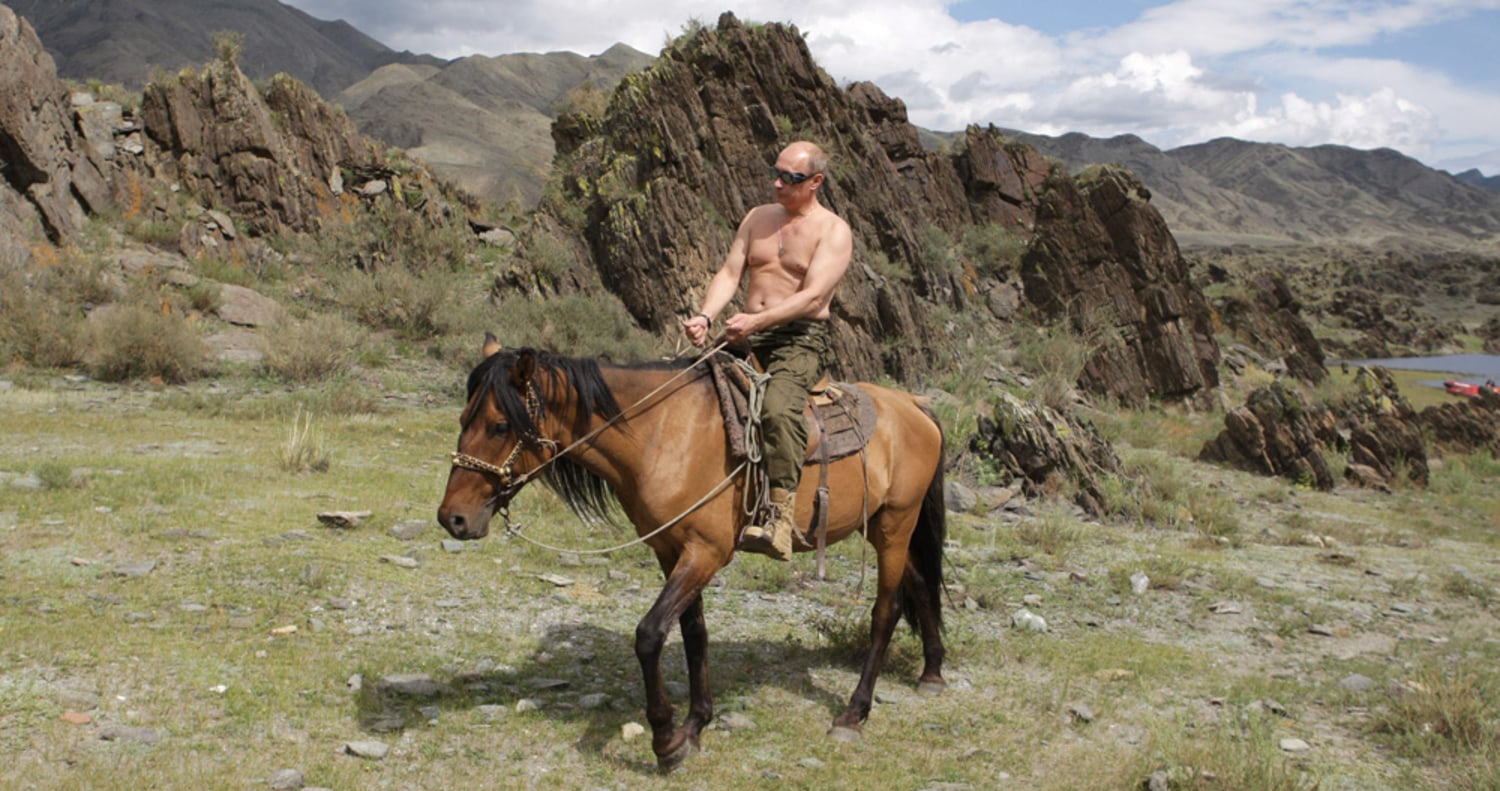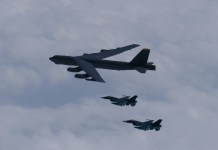For long, the carefully crafted stories about the machismo and bravado of Russian patriarch President Vladimir Putin have been shaping the narrative about the country’s image.
Incidents like President Putin attempting to scare former German chancellor Angela Merkel by calling in his black Labrador dog stems from this need to assert himself as a strong man running a strong country.
Back then in 2007, Putin brought a dog to a meeting with Angela Merkel ( the former Germany Chancellor), knowing very well that she was a afraid of dogs. Putin's KGB-style demonization of opponents to weaken their resolve or even create panic on their side is what he does best. pic.twitter.com/PoaeeU80Sv
— SELF MADE OPINION (@SelfMadeOps) February 26, 2022
However, recent media reports suggest that the stories about him posted as a young officer of the Russian intelligence agency KGB posted in East Germany are nothing but smoke and mirrors.
A German magazine’ Der Spiegel’ report unravels that the formative Putin years were less thrilling than they are made to appear. The report reveals that Putin was more of a “Pen-Pusher” than a “Super Spy” of the KGB.
Putin was a mid-level KGB officer in 1985 when he got posted to Dresden. East Germany was on the verge of imploding owing to the worsening economic situation and increasing brutality of the law-enforcement agencies.
Most of what Putin did during his time in Dresden is shrouded in mystery as the KGB destroyed and transferred related documents before the collapse of East Germany. Some scholars researching Stasi’s documents said that his file was thin.
According to the chief aide to the last Dresden Stasi chief Horst Jehmlich, Putin played a minor role in the neighboring KGB station and was more of an “errand boy.” As per him, sometimes Putin did sign important requests to the Ministry of State Security (MfS), but they were always clarified personally by the Soviet head of the KGB station.
Putin’s former colleague at the KGB office in Dresden buttressed Jehmlich’s view. He said that Putin’s work consisted mainly of “sifting through an endless stream of applications to visit family in West Germany or searching for potential informants among foreign students at the University of Dresden.
There have been stories describing Putin’s main task was to steal Western technology or NATO secrets by whatever means possible. Another document revealed that the Law graduate-turned-Russian intelligence agent was trying to recruit agents to be trained in “wireless communications.”
But to what end is not clear.
The stories say Putin had the ringside view of the end of the Cold War era. He is said to have been awarded a bronze medal in November 1987 by the Stasi, the Cold war era secret police of East Germany. It has been described as the next level up from the lowest award for service.
Putin’s fabled role was to sow discontent in West Germany with the help of the Left radicals operating in East Germany, supplying them with both weapons and instructions.
During his conspiratorial meetings with Stasi and the Left Radical assassination of prominent targets like Deutsche Bank CEO Alfred Herrhausen was purportedly discussed. The head of Deutsche Bank was murdered in the Frankfurt suburb of Bad Homburg on November 30, 1989, in a bomb attack that remains unsolved to this day.
The literature is rife with Hollywood-like missions attributed to Putin, like overthrowing the East German government, establishing a network of agents of defected Stasi employees, or blackmailing a toxic materials researcher.
The Spiegel report points out that there is a thin material supporting this role. The declassified Stasi files rarely mention Putin’s name, and where he is mentioned is for “banal events” like birthday greetings and German-Soviet friendship evenings.

Putin’s Fables Spawned By ‘Notorious Fabulist’
The Spiegel traced the source of these heroic exploits mentioned in the British journalist Catherine Belton’s bestseller “Putin’s People” to a 71-year-old purported Red Army Faction radical who has been granted anonymity.
The German Magazine found that the said source from Dietmar C. from the town of Dillingen in the western state of Saarland has been a source of many “questionable revelations” in the past and has been considered a “notorious fabulist” with several convictions in the past for making false statements. And to add it all, he was never a member of the RAF.
Dietmar C. has been the source of another biography of the Man from Leningrad called “The Man without a Face” by Masha Gessen. The story of the Left radicals receiving training sessions by Putin himself has been attributed to him. Later German journalist Thomas Fasbender in his biographical work ‘Vladimir V. Putin’ quoted Dietmar as having “no reservations about revealing his identity.”
What is damning to Dietmar’s embellished account of Putin’s involvement is that the German authority does not know his connection to the RAF, the KGB, or the Stasi. Der Spiegel looked into the matter and found that neither the Federal Prosecutor’s Office, which is responsible for terror investigations, nor the counterintelligence unit of the Federal Office for the Protection of the Constitution, nor the Stasi archives have any information about him.
Dietmar C. is more familiar with the West German judiciary. His criminal record started in the 1970s, and he has been convicted for crimes such as embezzlement, theft, coercion, and violations of the Weapons Act. He has served multiple prison sentences, and as recently as 2017, a Bavarian district court fined him for assault.
Der Spiegel’s report finds that Dietmar C. has a penchant for putting himself at the helm of affairs. Contrary to what he has told German journalist Fasbender, he told investigative journalist Jürgen Roth that he fought as a “mercenary” in Africa, in what was then Rhodesia, as a member of the RAF.
However, the record reflects that Dietmar C. didn’t fight for the RAF but served in Germany’s armed forces, the Bundeswehr. Trained as a medic, he fled with equipment and deserted. The District Court in Marburg, Germany, convicted him of desertion in December 1972.
In 1973 again, he was convicted for planning to rob banks to raise money to emigrate to Canada and found a rural commune as part of the hippie group. He was sentenced to three years in juvenile detention.
Creating A Tough Leader’s Persona
The Russian President has often been filmed engaging in martial arts and has been photographed ‘shirtless’ while riding horses and holding a gun in his hands. While this has invited ridicule from the world leaders, it is all part of a carefully crafted marketing strategy to project him as a tough leader.

The Russian head of state has often used animals to terrorize or antagonize world leaders. Putin once played the “My dog is bigger than your dog” game with former US President George W. Bush.
The photos of a visibly uncomfortable German Chancellor Merkel with Putin sitting with his legs spread wide have been splashed on the media, mostly for the benefit of the domestic audience.
Later Merkel aptly interpreted Putin’s behavior – “I understand why he has to do this – to prove he’s a man… He’s afraid of his own weakness. Russia has nothing, no successful politics or economy. All they have is this.” The KGB stories, too, seemed to have been spawned, keeping the domestic audience in mind.
- Ritu Sharma has written on defense and foreign affairs for over a decade. She holds a Master’s Degree in Conflict Studies and Management of Peace from the University of Erfurt, Germany. Her areas of interest include Asia-Pacific, the South China Sea, and Aviation history.
- She can be reached at ritu.sharma (at) mail.com




